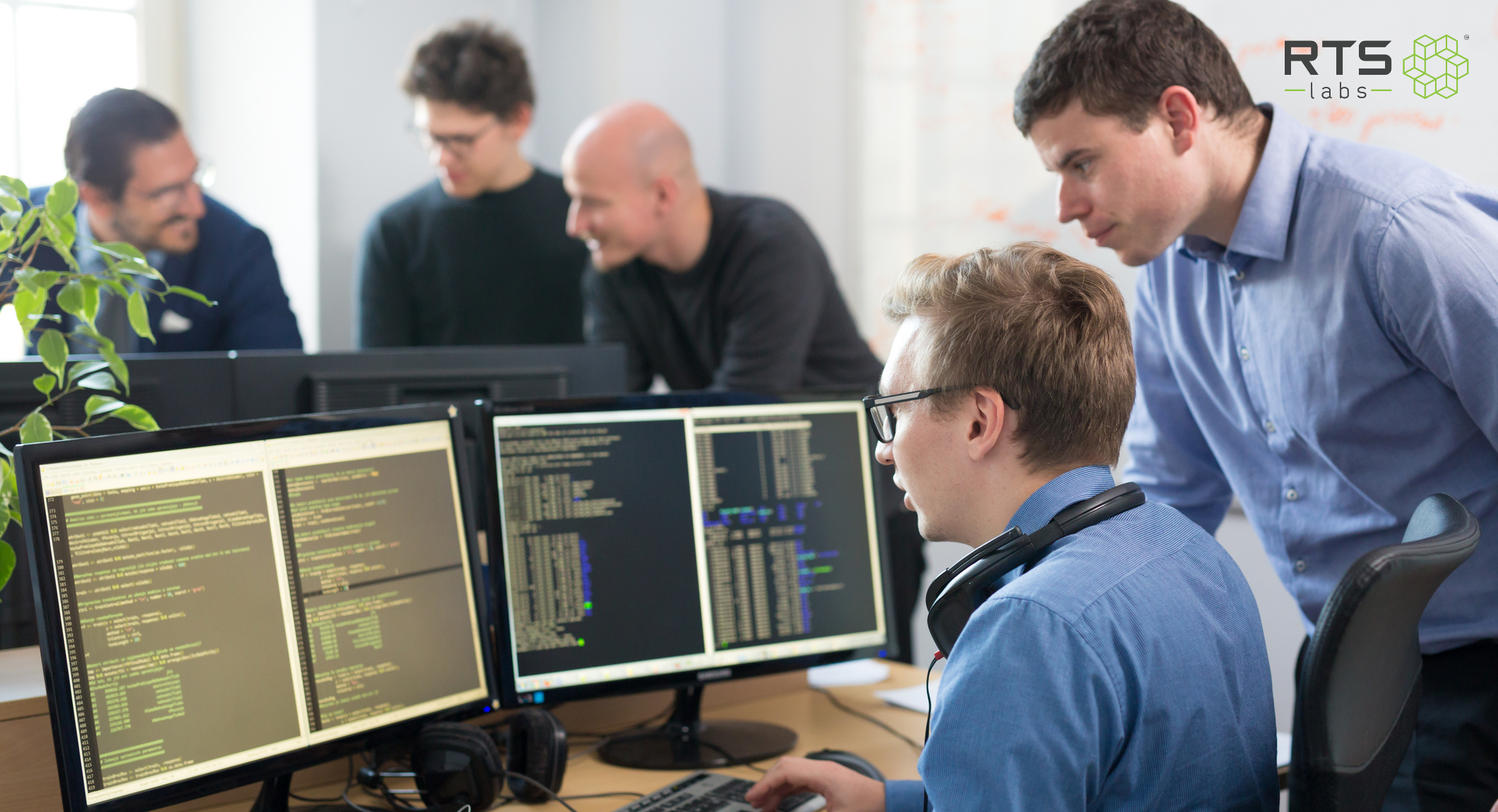As businesses across industries continue to embrace artificial intelligence (AI) technologies, the need for highly skilled AI-focused teams is growing exponentially. Additionally, companies implementing AI-driven strategies are realizing that success depends not only on advanced technology but also on assembling a team with the right mix of expertise, technical acumen, and leadership abilities.
To build a high-performing AI-focused team, it’s essential to prioritize a combination of core technical skills, problem-solving abilities, leadership qualities, and a deep understanding of ethical AI development.
In this article, we’ll explore the critical skills needed to create an effective AI-focused team and how they contribute to long-term success. From technical proficiencies in machine learning and cloud computing to leadership and communication skills, these capabilities form the foundation of a team that can harness AI’s potential to drive innovation and solve complex business challenges.
Core Technical Skills for an AI Team
To build a successful AI-focused team, organizations must first ensure that their members possess key technical skills. These form the backbone of any AI initiative and ensure that the team is equipped to design, implement, and optimize AI solutions.
Machine Learning Expertise
Machine Learning (ML) is at the core of AI. Proficiency in ML algorithms, neural networks, and deep learning frameworks such as TensorFlow and PyTorch is essential for AI teams.
These frameworks enable AI professionals to build sophisticated models that learn from data, adapt to new information, and make predictions. ML expertise allows teams to develop applications in a wide range of industries, from predictive analytics in finance to image recognition in healthcare.
Data Engineering
Successful AI models depend on high-quality data. Data engineering involves creating and managing data pipelines, ensuring that the data used in AI applications is clean, structured, and accessible. AI-focused teams must excel in data wrangling, integrating large datasets from various sources, and preparing them for analysis. This skill is crucial for ensuring the accuracy and reliability of AI systems, which heavily depend on well-structured data.
Programming Languages
Programming expertise is critical for AI development. Python is the dominant programming language in the AI field, known for its simplicity and rich libraries such as NumPy, pandas, and scikit-learn. AI teams should also have proficiency in other languages like R, known for statistical analysis, and Java, commonly used in enterprise-level AI applications. These programming skills enable AI professionals to build, test, and deploy algorithms effectively.
Cloud Computing
Scalability is a significant concern for AI applications, and cloud computing provides the infrastructure necessary to run large-scale AI operations. AI teams must understand cloud platforms like Amazon Web Services (AWS), Google Cloud, and Microsoft Azure. Cloud computing allows teams to manage data storage, computation, and the deployment of machine learning models on a global scale, making it easier to handle large datasets and complex AI models.
Natural Language Processing (NLP)
Natural Language Processing (NLP) is critical for AI applications that interact with human language, such as chatbots, virtual assistants, and language translation tools. Teams focused on AI development need a strong understanding of NLP to create models that can process and generate human language accurately. NLP skills are particularly important in customer service, marketing, and healthcare, where AI solutions are increasingly used to interact with customers and patients.
By combining these technical skills, an AI-focused team is equipped to build powerful solutions that leverage machine learning, data engineering, cloud computing, and natural language processing. This technical foundation is essential for companies that aim to integrate AI into their business operations.
Analytical and Problem-Solving Skills
While technical skills are crucial, the ability to analyze complex problems and devise effective AI solutions is equally important. Analytical and problem-solving skills enable AI teams to interpret data accurately, refine models, and develop innovative solutions that address business needs.
Data Analysis and Interpretation
AI projects often involve working with massive datasets, and the ability to analyze and interpret this data is vital. AI team members need to use analytical tools and techniques to uncover patterns, trends, and insights from the data. These insights inform decision-making and guide the development of AI models. Proficiency in data analysis ensures that the AI team can identify the right data for the problem at hand and extract actionable insights.
Model Evaluation and Optimization
Once AI models are developed, they must be evaluated for performance and accuracy. This involves testing the models using various metrics and datasets to ensure they produce reliable results. AI teams must have the skills to optimize models by adjusting parameters and algorithms to improve performance. Model optimization is crucial for creating AI solutions that are both accurate and efficient.
Critical Thinking
Critical thinking allows AI teams to assess the relevance of different AI approaches and determine the best solutions for specific business challenges. AI professionals need to evaluate various algorithms, models, and tools to identify the most effective way to address a given problem. This skill is particularly important in ensuring that AI initiatives align with business goals and create value for the organization.
By honing these analytical and problem-solving skills, AI teams can navigate the complexities of AI development and deliver solutions that drive innovation and improve business processes.
Leadership and Communication Skills
Effective leadership and communication are essential for guiding AI projects and ensuring collaboration across departments. AI leadership skills enable teams to execute AI strategies that align with broader business goals while fostering a culture of innovation and teamwork.
Strategic Thinking
AI leaders must have the ability to think strategically, ensuring that AI initiatives are aligned with the company’s long-term goals. Strategic thinking involves identifying opportunities where AI can have the greatest impact and developing a roadmap for integrating AI solutions into various business functions. AI-focused teams benefit from leaders who can articulate a clear vision for AI’s role in driving business success.
Cross-Department Collaboration
AI teams do not work in isolation; they must collaborate with other departments such as IT, marketing, sales, and operations to develop AI solutions that support business objectives. Strong communication skills are essential for facilitating cross-department collaboration. AI professionals must be able to work with colleagues from different backgrounds, explaining complex technical concepts in terms that are accessible to non-technical stakeholders.
Project Management
AI projects often require extensive planning, coordination, and monitoring. AI team leaders must possess strong project management skills to guide projects from inception to completion. This includes managing timelines, budgets, and resources, as well as ensuring that AI models are deployed on time and within budget. Effective project management is critical to the success of AI initiatives, particularly in large organizations with multiple stakeholders.
Effective Communication
One of the key challenges in AI development is translating complex technical concepts into understandable language for business leaders and other non-technical stakeholders. AI professionals must be adept at explaining the potential impact of AI solutions, as well as the limitations and risks involved. Clear communication ensures that AI initiatives receive the support and resources needed to succeed.
Leadership and communication skills are essential for managing AI-focused teams and promoting AI adoption across the organization. By fostering collaboration and effectively communicating AI’s value, AI leaders can help businesses harness the power of artificial intelligence.
AI Ethics and Responsible AI Development
As AI technologies become more integrated into business processes, ethical considerations are increasingly important. Building AI solutions that are fair, transparent, and responsible is critical for long-term success.
Bias and Fairness
AI models can unintentionally perpetuate biases present in the data they are trained on. It is crucial for AI-focused teams to recognize and mitigate these biases to ensure fairness in AI decision-making. AI professionals need to implement strategies to detect and reduce bias, creating models that provide equitable outcomes for all users.
Data Privacy
With growing concerns around data privacy, AI teams must prioritize the protection of customer data. This includes ensuring compliance with regulations such as the General Data Protection Regulation (GDPR) and the California Consumer Privacy Act (CCPA). AI professionals must understand the importance of maintaining data privacy while still enabling AI solutions that deliver value.
Transparency and Explainability
As AI becomes more embedded in decision-making processes, there is a need for greater transparency and explainability in AI models. AI-focused teams must develop models that can be easily explained to stakeholders, providing insight into how decisions are made. Transparency in AI development builds trust with users and helps prevent unintended consequences.
Sustainability in AI
Sustainability is another important consideration in AI development. AI teams should focus on creating models that are resource-efficient and minimize environmental impact. This includes optimizing algorithms to reduce computational requirements and exploring ways to make AI operations more energy-efficient.
By incorporating ethical considerations into AI development, companies can build AI solutions that are responsible, sustainable, and aligned with societal values.
Continuous Learning and Adaptability
The field of AI is evolving rapidly, and staying ahead of the curve requires continuous learning and adaptability. AI-focused teams must be committed to ongoing education and staying up to date with the latest trends and technologies.
Staying Updated with AI Trends
AI professionals need to keep pace with emerging tools, algorithms, and methodologies. Continuous learning ensures that AI teams remain competitive and capable of leveraging the latest advancements in AI. Staying updated with trends such as reinforcement learning, generative AI, and edge computing enables AI teams to create cutting-edge solutions.
Certifications and Workshops
Encouraging AI team members to pursue relevant certifications, such as those offered by Google, Microsoft, or Coursera, is a great way to ensure they stay current with industry best practices. Attending AI workshops and conferences also provides opportunities for learning and networking, helping AI professionals stay informed about the latest developments in the field.
Adaptability to New Technologies
The AI landscape is constantly changing, with new technologies emerging at a rapid pace. AI-focused teams must be adaptable, open to learning, and capable of integrating new technologies into their workflows. This adaptability is key to maintaining a competitive edge in AI innovation.
By fostering a culture of continuous learning, companies can build AI teams that are agile, forward-thinking, and prepared to tackle future challenges.
Best Practices for Building a High-Performing AI Team
Building a high-performing AI-focused team requires a thoughtful approach to hiring, training, and team culture. Here are some best practices to follow.
Hiring the Right Talent
The foundation of a strong AI team is recruiting individuals with the right blend of technical, analytical, and leadership skills. It’s important to seek candidates with expertise in machine learning, data engineering, and AI ethics, as well as those with strong problem-solving abilities.
Cross-Functional Training
AI teams should not work in silos. Encouraging cross-functional training helps AI professionals collaborate more effectively with other departments and ensures that AI solutions are aligned with overall business objectives. This training fosters communication and understanding between AI experts and non-technical staff.
Building a Collaborative Culture
Fostering a collaborative culture within the AI team is essential for innovation. AI-focused teams that prioritize collaboration and shared learning are more likely to develop creative solutions that drive business success. Creating an environment that promotes openness, diversity of thought, and teamwork is crucial.
Incorporating Diversity
Diverse teams are more innovative, as they bring a variety of perspectives to problem-solving. Building diversity within AI teams, whether in terms of background, expertise, or gender, can lead to more creative and effective AI solutions.
By following these best practices, companies can cultivate a high-performing AI team that drives long-term success.
FAQs Section
What roles are essential in an AI-focused team?
Key roles in an AI-focused team include data scientists, machine learning engineers, AI researchers, and project managers. Moreover, each role contributes to the overall success of AI initiatives by providing specialized expertise in different aspects of AI development.
How can companies ensure ethical AI development?
To ensure ethical AI development, companies should prioritize AI ethics training for their teams and implement best practices that promote transparency, fairness, and accountability. This includes auditing AI models for bias and ensuring compliance with data privacy regulations.
What industries need AI-focused teams the most?
Industries such as healthcare, finance, retail, and manufacturing are leading the way in AI adoption. These sectors use AI to enhance customer experiences, improve operational efficiency, and make data-driven decisions.
How can a business measure the success of its AI team?
Businesses can measure the success of their AI teams by tracking key performance indicators (KPIs) related to project outcomes, return on investment (ROI), and the efficiency of AI model deployment. Successful AI teams deliver measurable value to the organization through improved processes and innovation.
What is the biggest challenge in building an AI team?
One of the biggest challenges in building an AI team is finding the right balance. Between technical expertise, problem-solving skills, and leadership capabilities. Additionally, companies must recruit individuals who not only excel in AI development. But can also drive AI adoption across the organization.
Driving Innovation and Success with a Well-Rounded AI-Focused Team
Building an AI-focused team requires a careful blend of technical skills, leadership abilities, and a commitment to ethical development. Companies that invest in hiring the right talent and creating a collaborative culture are better positioned to succeed. By assembling a well-rounded AI-focused team, businesses can drive innovation, optimize processes, and achieve long-term success in today’s AI-driven landscape.
Ready to Elevate Your Business with AI?
Don’t wait to harness the power of artificial intelligence. Contact RTS Labs today. Discover how we can help you build a well-rounded, AI-focused team that drives innovation. Setting you up for long-term success in today’s competitive landscape.









